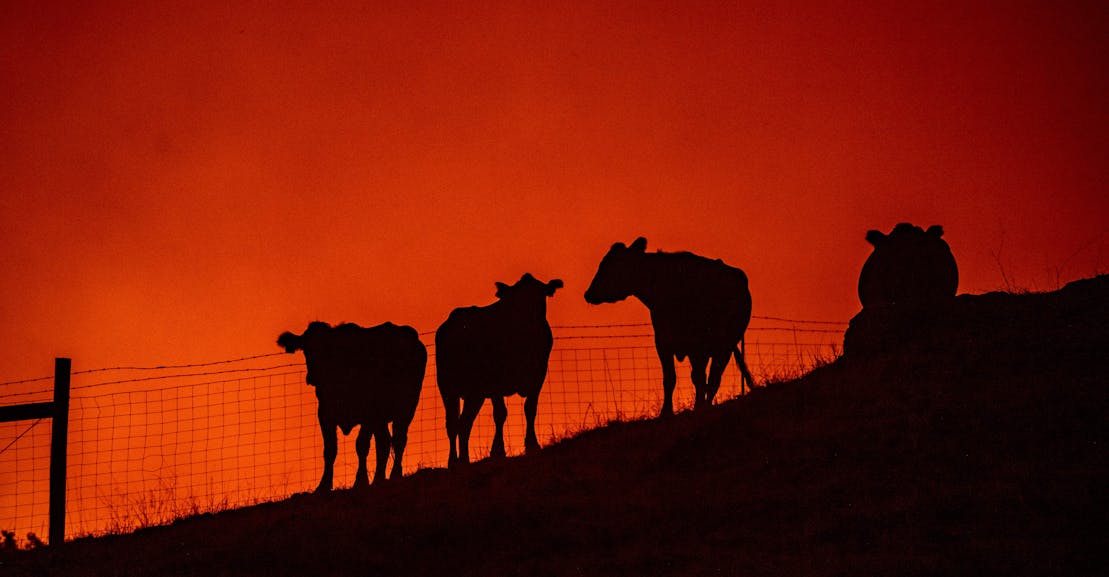In a video shared by the United Farm Workers on Friday evening, the sky was orange and the air hazy. In Oregon City that day, the Air Quality Index was hovering between 201 to 300, deemed “very unhealthy” by the Environmental Protection Agency. But the farmworkers were there all the same, standing in a field with masks, handkerchiefs, and neck gaiters on, trying to pick as many grapes off the vine as possible.
Juan shared this video of the wine grape harvest near Oregon City, OR. The nearby fires were stoked by high winds making for a dark and hazy day. When you buy wine, remember the farm workers that brought it to you. #WeFeedYou pic.twitter.com/ztxbufS8Y1
— United Farm Workers (@UFWupdates) September 11, 2020
It’s not just Oregon. In California, 38-year-old farmworker Juan Reyes told The Guardian his chest and throat were hurting after a full day of picking strawberries and that he was having “difficulty breathing.” At a grape field in Lodi, picker Luis Sandoval told ABC10 the notion of hazard pay was never broached by his boss. Go back further, and you’ll see a familiar cycle of coverage. Wildfires in 2018 didn’t stop strawberry field supervisors from pushing 34-year-old farmworker Santiago to pick up the pace. “They don’t care about our health,” Santiago said in an interview with The Washington Post. “They just care about the strawberries.”
Much like the Smithfield plant workers forced back into slaughterhouses shortly after the pandemic exploded, farmworkers in California and Oregon are being pushed out into the fields despite chaotically dangerous conditions. Their pay hasn’t budged, nor do they have the promise of health care for potential long-term health impacts from repeated smoke and ash exposure.
An out-of-control virus, on one hand, fields set ablaze on the other: This is the ghoulish normalcy established by decades of corporate-led attacks on farmworker unions and shamefully bipartisan policies locking farmworkers out of basic labor protections. As a result, the American agriculture and food processing industries come with a kind of death pact built in for workers. Things don’t have to be this way, but the people picking grapes while the wildfires rage in the mountains behind them are running out of time.
The labor schemes employed by agriculture and food production companies alike follow the same model: Where technology has begun to eliminate the need for pickers in the harvesting process for crops like soybeans, cotton, and corn, other crops, like grapes and strawberries, still require human hands to transport them safely from the field to the delivery trucks. So, to keep their profit margins as wide as possible, corporations have learned to lean on undocumented workers.
